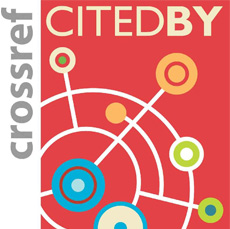ISSN : 2288-5412(Online)
DOI : http://dx.doi.org/10.14354/yjk.2004.22.197
W.B. Yeats As an Anglo-Irish*
Abstract
This paper is motivated by our current social phenomena that the fanaticalnationalism to evacuate the past is also applied to the work of reevaluating writersof the past as well as of the present; interestingly, the same situation happened toYeats. This paper starts with some hypothesis that the primary reason for the lowerreevaluation of Yeats since the birth of Free State until its rebirth as a member ofE.U. is that he belonged to the Anglo-Irish Ascendancy. And then this paperinvestigates identity and contribution of the Anglo-Irish to Irish history. And finallythis paper tries to find out how Yeats reacted to the radical change of hegemonyespecially after Responsibilities.
The investigation into his poems leads us to the conviction that in his firststage, he wanted to surrender his half-blooded Englishness to his anotherhalf-blooded Irishness. This explains why he tried to dig up the ancient Gaelicculture and to advocate the Gaelic Catholic in his first stage. However we canwitness his changing attitude after the Easter Rising: some threat from the majorityCatholic fanaticism awakened Yeats's self-recognition as an Anglo-Irish, advocatingtheir class and culture in his poems since Responsibilities.
It follows that although Yeats wanted to be an artist for art as such, he couldnot but seek for reconciliation of two aspects of Ireland, -that is, its religion and ethnicity. Yeats's poetry reflects the shift in the political hegemony and thedefinition of the Irish identity. My conclusion is as follows. The main reasonYeats's evaluation was going down during the period Ireland was being establishedas a republic country is that he belonged to the Anglo-Irish Ascendancy, the pastpower group. Through Yeats's poems we can witness the decline and agony of theAnglo-Irish during the birth of Republic of Ireland.
Therefore the historical contribution of the Anglo-Irish is to be reevaluated;Yeats's Literary Revival is also referred to as "a cracked mirror of the servant". Byreading again Yeats's poems from the new perspective towards Yeats as anAnglo-Irish, we can see that Yeats's advocacy of the Anglo-Irish was made onlyafter he was threatened by the fanatical Catholic nationalism and that he adhered tothe reconciliation of the divided Ireland throughout his life. Meanwhile, this studyleads to another question: Is it possible that the art is free from the politicalpressure or turmoil? In my opinion, although art is not free from that situation, itcan only survive when it shines in the filthy tide, searching for the independenceand freedom. I think W.B. Yeats is an example.
초록
-
-
Submission : JAMS
https://yjk.jams.or.kr/
-
YSK
The Yeats Society of Korea
-
Editorial Office
Contact Information- Tel: +82-2-2220-4477
- E-mail: ilhwan_y@hanyang.ac.kr -

-

-

-

-

-





